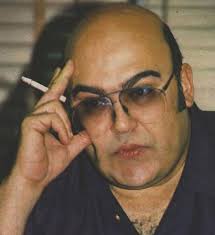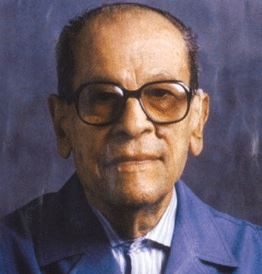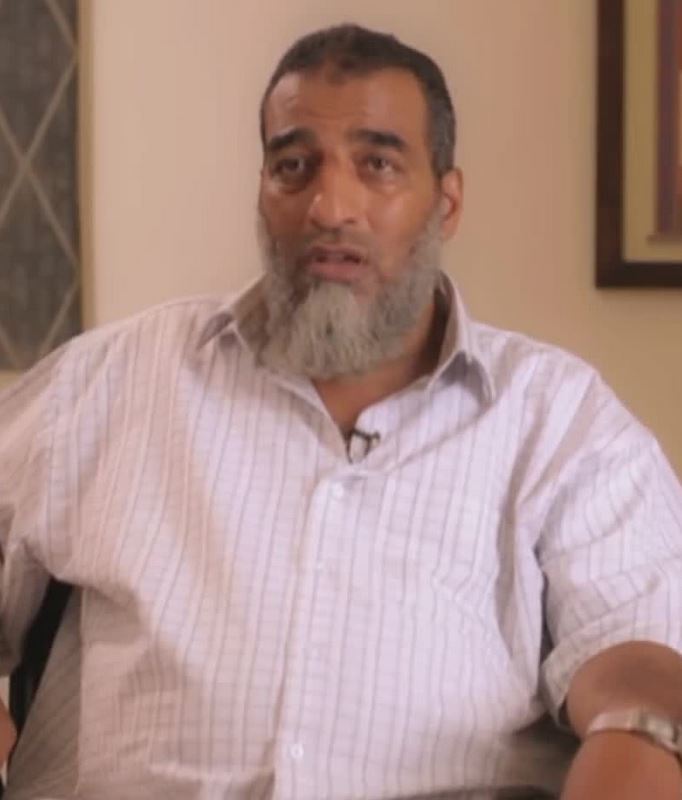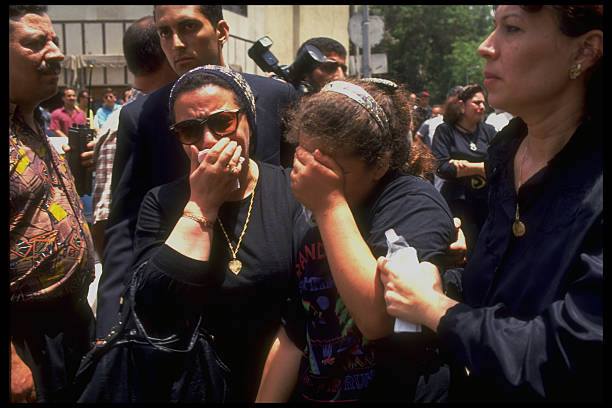
The past years have witnessed in various Arab countries a campaign of assassinations targeting intellectuals and public opinion leaders in particular. But they also targeted military and civilian leaders, sometimes in a purely sectarian manner, as happened in Syria during the 1980s at the hands of the ‘fighting vanguard of the Muslim Brotherhood.’ It was publishing loud and provocative statements of the following type: “Yesterday we killed So-and-so because he is an Alawite infidel.”
BY HASHEM SALEH
THAT IS WHAT they said, literally. They did not say that they killed him because he is for the regime or against the regime, but simply because he is an Alawi. In other words, they held him accountable for something that he had no control over: the place of his birth. He was unfortunate enough to have been born in the wrong area.
Such is the logic of fundamentalists in all times and places. And they were proud of that and bragged about it without anyone voicing any objection, with the exception, perhaps, of Dr. Jamāl al-Ātāsi and some other enlightened intellectuals. Intellectuals and journalists suffered a large share of these assassinations: from Algeria, to Syria, to Egypt, to Lebanon, to Iraq, the Arabian Gulf, and so on. This is because the fundamentalists know the importance of intellectuals in shaping public opinion and spreading new ideas that make them dyspeptic. For this reason, they focus on them in order to eradicate them or their ideological influence on minds.[1]
No one knows how many writers and journalists fell victim in Algeria during the black decade to the bullets of the blood-thirsty jihadists. No one knows the large number who fell victim in Syria, Iraq, Egypt, Sudan, the East or the Maghreb, and so on. I cannot talk about all those who fell under the hail of bullets of the Muslim Brotherhood in Syria, for example. I wish I could talk about the case of Dr. Muḥammad al-Fāḍil, President of Damascus University. But the story is well-known and famous, so whoever wants to may refer to pages of books or the Internet. I just want to say that his case is different from the case of the assassination of Farag Fouda or any other Egyptian and Algerian intellectual or journalist.
The virtuous doctor was assassinated on a purely sectarian basis, and not only because he had an enlightening thought, as happened to Faraj Fouda. He was assassinated because he was an Alawi during the period of the fierce campaign launched by the ‘fighting vanguard’ against all Alawite officials, both civilian and military, as they fell upon dozens or hundreds in the 1980s and 1990s. They did not attack the senior Sunni officials, even though they were equally abundantly represented in the structure of the regime.
Religious assassination is more dangerous than political assassination because it is carried out in the name of the Most Holy, that is, God Himself
Why was that? It was to drive a wedge deep into the heart of the national unity of the Syrian people. They succeeded to a large extent, unfortunately. The black sectarian theology adopted by the Muslim Brotherhood is primarily responsible for the Syrian catastrophe (although this does not, of course, deny the responsibility of tyranny, the role of the intelligence services and the stifling of freedoms).
As for Farag Fouda, Al-Ṭāhir Jaʽūṭ, and other Egyptian and Algerian intellectuals, they were not assassinated on sectarian grounds. This is because they are Sunni Muslims who belong to the majority and thus ‘there shall no fear come upon them neither shall they grieve’.[2] But they were assassinated on the basis of their enlightening modernist ideas and convictions, which are opposed to Islamist, sectarian and obscurantist ideologies. This is to be accounted an honour for them. They are role models for us all.
One could say the same about Naguib Mahfouz, the greatest Arab writer of this era. They tried to assassinate him on an ideological, not sectarian basis, since he is not a minority and thus does not suffer in this respect due to his birth. He was condemned in their eyes for the novel The Children of Our Neighborhood, one of the masterpieces of our modern literature and thought. They considered it a work of atheism and disbelief. They pronounced him ‘kāfir’ and stabbed him in the neck with a knife,[3] a man almost ninety years old! And this was after, not before, he won the Nobel Prize for literature, that is, after he had raised high the banner of Egyptians and Arabs among the nations of the world.
A distinction must therefore be made between this and purely sectarian assassinations that may infect intellectuals of Shiʽite sects in general, as well as Christian intellectuals such as the esteemed and slain Jordanian writer Nāhiḍ Ḥattar. These are two completely separate phenomena. The assassination of intellectuals of minorities differs from the assassination of intellectuals of the majority populations. Even so, there is a common thread linking these intellectuals who are targeted for physical liquidation, whether they belong to the majority or to minorities: that is, they hold enlightening, progressive ideas that oppose the mindset of the Muslim Brotherhood and those of their ilk.
Why do I say that the theological fatwā is more dangerous than a bullet? Or that religious or theologico-priestly assassination is the most dangerous type of assassination? Why do I say that a radical reform of Islamic theology is the prerequisite for transcending the current obscurantist stage we are living through?
In answer to these questions, I maintain the following: Religious assassination is more dangerous than political assassination because it is carried out in the name of the Most Holy: that is, God Himself. Therefore they are killing you twice, not once, for it is at the same time a moral and a physical assassination – while political assassination is a physical assassination alone and does not partake of any sanctity. In the eyes of the faithful or religious masses religious assassination rightly annihilates you and inflicts an eternal curse upon you.
The issue is above all else theological. If a new theology does not appear, this problem will not be solved for a million years!
Your assassination is therefore something completely natural. Why? Because Shaykh So-and-so issued a fatwā saying that you are an infidel, an enemy of God. For this reason, your assassination becomes a legal duty. Indeed, those who slaughter you are thereby only drawing closer to God Almighty. For there is a divine or eschatological reward for the one who carries out the assassination: he goes straight to heaven. Political assassination, on the other hand, remains a worldly and material thing, devoid of sanctity or respect.
To further explain and clarify the idea, I will say the following: Theologico-religious assassination has its own rules and principles and is by no means random, contrary to what we think. The fanatic riding a motorcycle and tasked with shooting an intellectual from the back or from the front does not do that merely on his own volition. Rather, in order for him to become fully convinced of the process, he waits until his shaykh issues the theological condemnation that declares this intellectual to be an infidel, and then goes on to assassinate him reassured by a clear conscience. For it is not easy to kill a person you do not know, and where there is no personal enmity between you and him, and you have certainly not read a single line of his writings, as the killer of Farag Fouda or the killer of Naguib Mahfouz stated.
Consequently, it is the religious or theological fatwā that gives him tremendous moral strength and helps him pull the trigger, so to speak, to kill the victim. Without this fatwā the fundamentalist stoked up with religious fanaticism would simply not have dared to open fire. Without the fatwā, his conscience would have tormented him severely, and he might even have turned insane. But the Qur’ānic verse, extracted from its context, protects and reassures him: “Ye slew them not, but Allah slew them. And thou cast not when thou didst cast, but Allah cast”. [4]
And, of course, we should not forget the fatwās of Ibn Taymiyya and the rest of the major figures of the early and later fundamentalists throughout the course of history. A veritable horde! Their words too enjoy theological sanctity, much like the Qur’ān. It is well known that Ibn Taymiyya constitutes the supreme reference for all contemporary fundamentalist movements. We can see this clearly in the statements put out by the killers of Farag Fouda, Naguib Mahfouz and many others. Keep in mind that the clergy and the people in general believe that the heritage as passed down to us is entirely divine from beginning to end. Even when the most insignificant shaykh speaks, the common people feel as if he is speaking divine words or representing divine holiness on earth. If you were to say to them “yet in the name of these black fatwās thousands of innocent people are killed, markets and squares crowded with people are blown up, taking the lives of innocent bystanders in the streets of London, Paris, Nice and so on, they will simply respond by saying “these people deserve to be killed according to Islamic law because they are heretics or infidels. Are you then opposing the application of God’s law?”
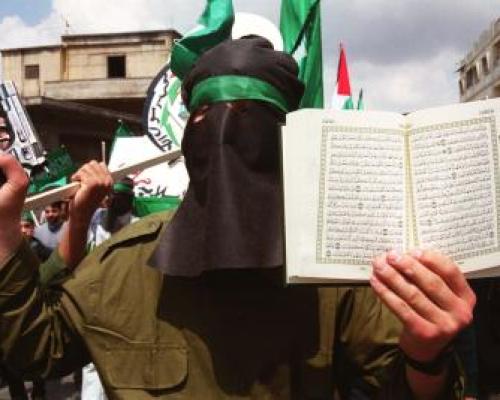
Suggested Reading
Hence, the issue is above all else theological. And if some new theology does not appear in Islam to replace the old takfīrī, obscurantist theology, this problem will not be solved for a million years!
In a following article, I will discuss the current conflict in the Arab world taking place between two types of intellectuals: the fundamentalist and the enlightenment intellectual. This is a very intense and bitter struggle. It is a struggle for the supreme intellectual legitimacy not only in the Arab world but over the entire Muslim world. In this contest there remain to be resolved questions of this type: What kind of thought is ḥalāl (permitted), and what is forbidden? Should Islam be modernized or modernity Islamized? When will it be that Muslims repudiate the deadly takfīrī fatwās? And can they? And if so, how?
It goes without saying that whoever prevails in this huge conflict will gain the very future of the Arabs and that of all coming generations.
[1] In the distant past, great intellectuals were assassinated on charges of heresy and blasphemy. Among them we mention Ibn al-Muqaffa’ (720-756), who was killed in a horrific and brutal manner that is almost unimaginable to the mind. A similar fate befell the poet Bashshār Ibn Burd (715-786), the great mystic Al-Ḥallāj (858-922), the other great thinker Al-Suhrawardī (1155-1191), and dozens of others.
[2] The author here is quoting Qur’ān II (al-Baqara) 112: Nay, but whosoever surrendereth his purpose to Allah while doing good, his reward is with his Lord; and there shall no fear come upon them neither shall they grieve. (Ed.)
[3] The stabbing in the neck is a specialism of militant Islamists, in obedience to the Qur’ānic injunction: فَإِذَا لَقِيتُمُ الَّذِينَ كَفَرُوا فَضَرْبَ الرِّقَابِ Therefore, when ye meet the Unbelievers, smite at their necks. [Qur’ān XLVII (Muḥammad), 4]. (Ed.)
[4] Ye slew them not, but Allah slew them. And thou cast not when thou didst cast, but Allah cast, that He might test the believers by a fair test from Him. Lo! Allah is Hearer, Knower. [Qur’ān VIII (Al-Anfāl), 17]. In other words, the one who killed Farag Fouda was God personally, and not ‘Abd al-Shāfī Ramaḍān the person who actually shot him from behind. At this level, we should set things straight in order to understand the depth and danger of the theological assassination. It is much more dangerous than mere political assassination, which has no divine legitimacy, but has merely an ideological, political or earthly legitimacy. There is a signficant difference between the two.
Main image: Mourners at the funeral of Farag Fouda.
